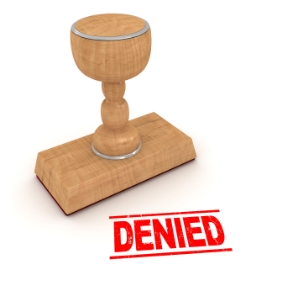Do you have a fake car insurance policy?
Lori Johnston
Shopping around for car insurance may lead deal-hunting consumers to unknowingly purchase a fake insurance policy.
For years, people have been duped into buying phony policies, thinking they are saving thousands of dollars annually on insurance.
 And this can hurt you financially if you ever need to make a claim. If you have a fake policy and get into an accident, when you file an insurance claim, you’ll discover there is no coverage to pay for repairs or a new vehicle.
And this can hurt you financially if you ever need to make a claim. If you have a fake policy and get into an accident, when you file an insurance claim, you’ll discover there is no coverage to pay for repairs or a new vehicle.
Now, some states are bringing more attention to this important insurance issue. Many states, including Montana, Virginia, Michigan, Wyoming, Alabama and West Virginia, have adopted electronic verification systems that can tell in seconds if the policy is bogus. These systems work by gathering the names of customers and their vehicle identifications numbers from legitimate insurance companies. Law enforcement officers can access this information and use it to determine if a driver is properly insured.
In fall 2013, Michigan launched an initiative called Fighting Auto Insurance Rip-offs, or FAIR, after finding that insurance fraud was “rampant,” according to Michigan Secretary of State Ruth Johnson.
More than 16 percent of insurance certificates submitted for verification on just one day in Michigan were fake, the state found. In some counties, nearly 50 percent of insurance certificates were fraudulent.
“We are going to put the brakes on the criminals who are selling this stuff and are preying on unsuspecting Michigan drivers,” Johnson said during a September 2013 press conference.
So how can you tell if your car insurance policy is fake? And how can you avoid buying a fake policy?
How can you tell if you have a fake car insurance policy?
To find out if your existing insurance policy is real, follow these steps:
- Check your insurance ID card and documentation. If you have purchased insurance and you don’t receive documentation directly from the company (such as a policy with the “declaration page” providing the basic information or permanent insurance cards) within a few days, you have probably purchased a fake policy, according to the NICB.
- Check the wording on the policy. If you have received documentation from the insurance company, see if the paperwork has any misspellings – these could be the sign of a phony policy.
- Scan the QR code. If the policy has a QR code (a type of barcode that you can scan with your cellphone), scan it. Michigan officials found that a QR code of a policy used by nearly 30 customers linked to an online site that said, “Llamas are sooo cool.”
- Check your insurance agent’s license number. You can verify your insurance agent’s license number on your state department of insurance website. You also can check the insurance company’s rating online by visiting the A.M. Best website, which provides credit ratings for the insurance industry. By searching for the insurer, you will learn if the company is real and is able financially to pay out claims.
How to make sure you purchase a legitimate car insurance policy
Here are four ways to make sure you are buying a legitimate insurance policy.
1. Be selective.
Only purchase your insurance from a company with an established office location, not someone who sells insurance over the telephone or door-to-door. The NICB advises choosing a company that advertises on TV or billboards, since people selling fake insurance don’t typically pay for ads.
If shopping for insurance on the Internet, check that the website is secure. When visiting an insurer’s website, look for the lock icon (typically in the address bar) or a URL that begins “https:”. Don’t type in any personal data if you don’t trust the site, according to the Michigan Secretary of State office.
2. Verify the company.
Before you purchase the insurance from an insurer you don’t recognize and/or who is offering cheap rates, verify the company with your state’s department of insurance. You can also check with your state’s department of motor vehicles as well as the Better Business Bureau, which gathers consumers’ reviews of businesses.
3. Avoid paying immediately.
If you are asked to pay the premium in cash or check, or any form of payment providing immediate access to your money, be wary. Legitimate insurers will typically accept credit cards, or encourage you to set up a monthly direct deposit for your premium.
4. Watch for rule benders.
If an agent is willing to “backdate” your policy (change the date that the policy comes into effect), that’s another indication that your policy is fake.
